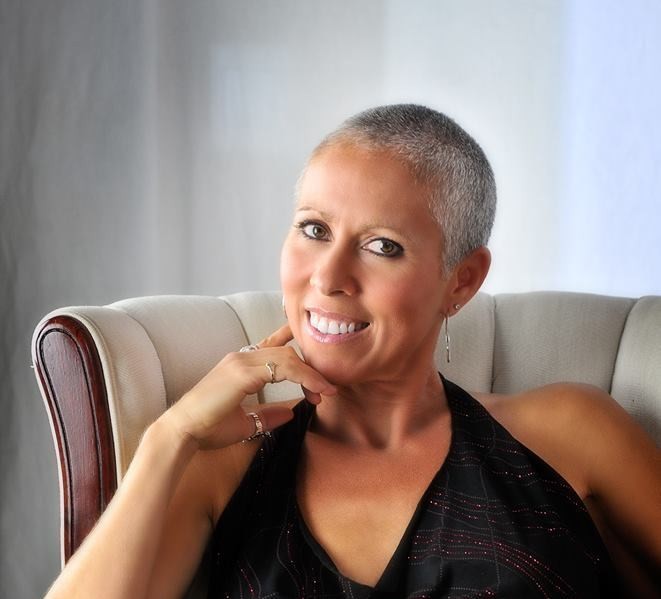Alright – so today we’ve got the honor of introducing you to Deanne Brown. We think you’ll enjoy our conversation, we’ve shared it below.
Deanne, looking forward to hearing all of your stories today. Was there a defining moment in your professional career? A moment that changed the trajectory of your career?
Yes, the defining moment in my career was the day I was diagnosed with cancer. I just didn’t know it at the time. At the age of 44, I was considered young for breast cancer, which forced itself into a midlife already crowded with a husband, three children, homeschooling, and a rock band. Midlife is not an easy time to be faced with cancer—not to imply that there is ever an easy time. Although I counted my many blessings—living in Southern California a stone’s throw from the beach, a loving community of homeschooling friends, and a family I treasured—I was struggling. A shift in how I saw myself as I began to realize that the ambitions that ruled countless decisions in my first half of life were no longer working or served my soul. Then add cancer to the mix. Being forced to face my own mortality at a time when most people are busy raising a family and/or building a career, I found that I needed to take a closer look at my life and make some changes. I went back to school, left an unhealthy marriage and started my 8-year journey toward a new career as a psychotherapist.
It’s important to point out that my transformation was not based on one “aha” moment. There was no epiphany or satori. There were no bright lights or angels descending from heaven. No, my change was deliberate and intentional: new career, new relationship status, new story, new life. Interesting how facing the possibility of death gives you a window into how you want to spend your life.
I recently celebrated 12 years cancer free. No words can truly capture the immense gratitude I feel for getting a second chance at life. Not only do I get to pay it forward as a psychotherapist, but I also get the privilege to see my book, Not Now Cancer, I’m Busy, through to publication, watch my children launch into adulthood and create lives of their own making, and if all goes well, I get to grow old – things I was afraid I might never get to witness or experience the day I was diagnosed with cancer.
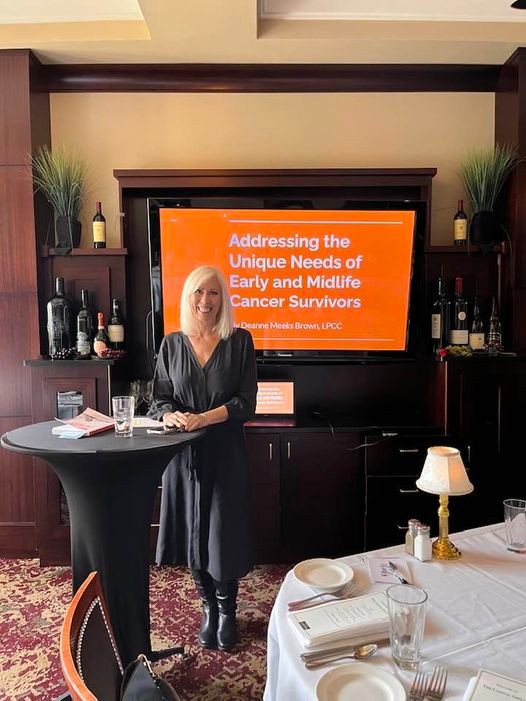
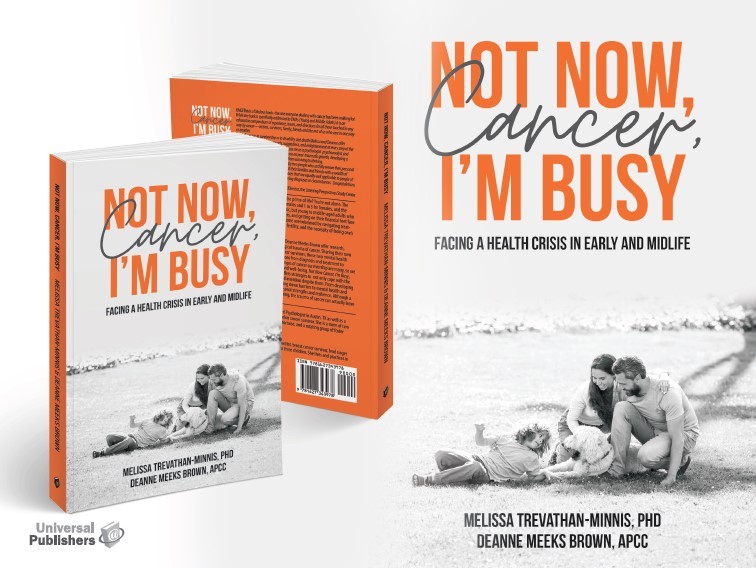
Awesome – so before we get into the rest of our questions, can you briefly introduce yourself to our readers.
I am a Licensed Professional Clinical Counselor. I help provide emotional support for adults in their 20’s, 30’s, 40’s and beyond during times of upheaval and transition. It may come to no surprise that as a psychotherapist, I specialize in helping people navigate the stress and uncertainty that can come with major life transitions such as illness, relationship changes, a new job, mid-life crisis, or loss.
People experience a wide range of emotions, including sadness, anxiety, and fear when faced with an unexpected change. I provide a supportive environment where individuals can express their feelings without fear of judgment or criticism. I also provide a fresh perspective on a situation and help people see things in a different light. This can be especially helpful when someone is feeling stuck or overwhelmed. Helping people develop coping strategies such as mindfulness techniques, problem-solving skills, and self-care practices are also helpful techniques that I offer my clients so that they are better equipped to deal with the stress and uncertainty of a life transition.
Life transitions can be a time of personal growth and development. I can help my clients identify their strengths and weaknesses and work towards personal goals. Life transitions can also exacerbate underlying mental health issues, such as anxiety or depression. I can help people identify and address these issues, leading to improved mental health and wellbeing.
Working with people diagnosed with cancer is also deeply important to me. As a cancer survivor myself, I help individuals navigate the anxiety, depression, exhaustion, isolation, and existential angst a person may feel when facing a cancer diagnosis in the prime of life. My sensitivity and compassion help cancer survivors and their families feel safe to discuss the most difficult subjects relating to cancer, its treatments, and the effects both have on relationships, body image and self-worth, infertility, mortality, and more. Although cancer can be excruciatingly painful, it can also be an opportunity for change and growth, especially, with the help of someone who knows.
I believe that therapy is a collaborative process. I work closely with my clients to develop personalized treatment plans that address their unique needs and goals. I come from a humanistic approach and use a variety of evidence-based therapies, including Cognitive-Behavioral Therapy (CBT), Acceptance and Commitment Therapy (ACT), Psychodynamic Therapy, and Logo (Existential) Therapy. I have also done extensive research in the field of depth psychology and enjoy exploring the larger questions of life that arise during a midlife crisis, illness, and other major life transitions. My approach allows me to help others develop a deeper understanding of themselves, and their place in the world.
I am excited to share that I recently coauthored a book called Not Now, Cancer, I’m Busy: Facing a Health Crisis in Early and Midlife. Our book offers research, resources, and support to help young and middle-aged adults overcome the psychological trauma of cancer. We share our own stories along with insights from other cancer survivors and help guide the reader through the rollercoaster of emotions from diagnosis and treatment to transitioning back to life post-treatment. Not Now, Cancer, I’m Busy is available on Amazon and Barnes & Noble.
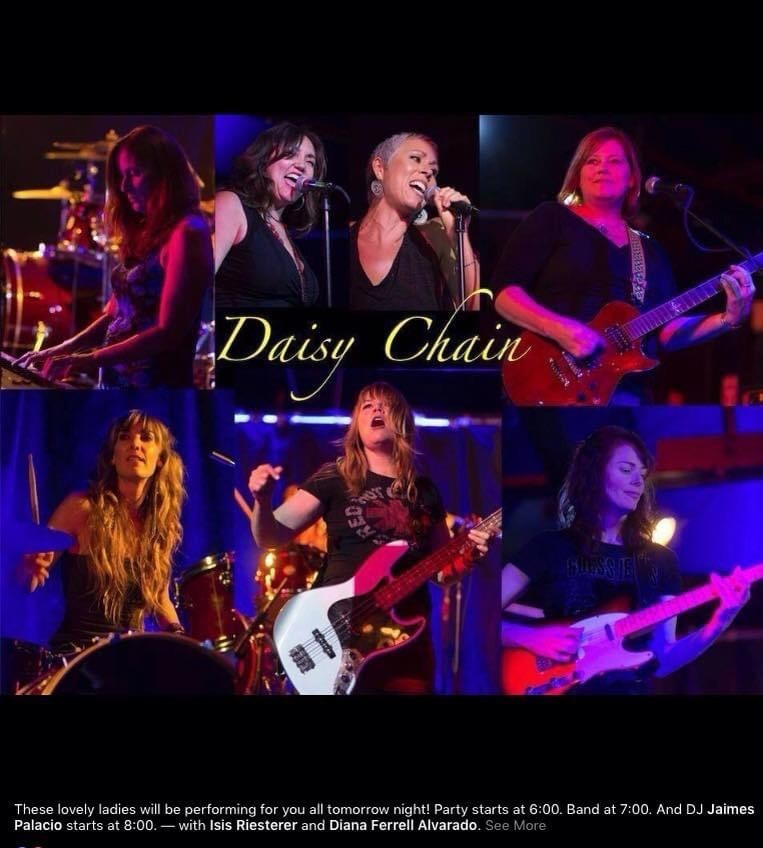
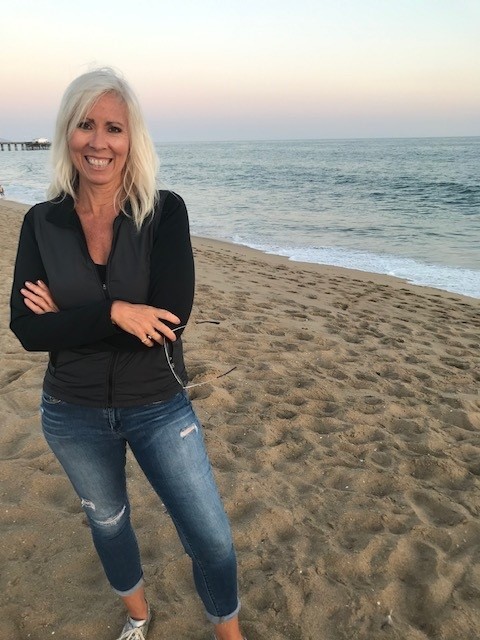
Let’s talk about resilience next – do you have a story you can share with us?
I have lots of stories, but this one stands out from the rest. I had signed up for a women’s retreat with my girlfriends in the mountains. The retreat was scheduled smack-dab in the middle of my chemo treatments. I had already paid my deposit, and I still planned to attend, a bit of the glass is half full attitude. Realizing that I may be sick form the chemo, I asked my girlfriends if they would hold my hair back while I threw-up, like my mom used to do when I was a little girl sick with the stomach flu. Then I stupidly remembered, “Oh yeah, I won’t have any hair,” and we all laughed. At that moment, I knew that I would be okay no matter what happened because 1) I had friends who loved and supported me 2) I was able to find the humor in the most absurd situations and 3) I knew that dwelling on unfortunate circumstances was not helpful. What is helpful? – harnessing my strength, focusing on the things I can control rather than the things that I can’t control, and rebounding after each blow, all traits associated with resilience. It seems that the ever-popular idiom, “What doesn’t kill you makes you stronger,” is not so far from the truth. One more thing I would like to point out, if you feel that resilience is not your strong suit, no worries, you are not doomed. Bouncing back is a process, not a character trait. In other words, resilience is learned, and most of us have the capacity to learn.
We often hear about learning lessons – but just as important is unlearning lessons. Have you ever had to unlearn a lesson?
I used to think that I had to be completely certain in my abilities before I tried something new. I have learned through my psychotherapy training, as well as my own life experience, however, that confidence does not come before the action. Quite the contrary. The action comes first, and then we feel confident. I learned this lesson when my friends and I first came up with the idea of starting a rock band. There was one glitch: not one of us could play an instrument. But that didn’t stop us. We bought guitars and a bass, replaced the living room furniture with drums and a PA system, and hired out own “Jack Black” from School of Rock to teach us how to play. Twice a week, six of us forty-something suburban moms left the dishes and laundry behind to play some rock n’ roll.
Our band became a significant part of my life. I could feel the endorphins kick in, the stress leave my body, and a sense that all was right with the world as I belted out Blondie, KT Tunstall, and Joan Jett songs. It was when we performed our originals, however, that I felt true bliss. Writing songs, and being part of a creative process with friends, where I not only got to put words to my pain, but I also got to express that pain on stage – sometimes quite loudly – was emotionally therapeutic. I believe it helped me get through cancer, and all the other challenges in my life. Research regarding the healing qualities of music confirms my experience.
In time, we performed at venues around town including a breast cancer fundraiser, and the local biker bar. Mostly we played in our driveway and invited our friends, and family over for a night of potluck, and music under the stars. I learned many things about life, friendship, and music while playing in a band. What I learned most, however was that we should never wait to feel completely certain or confident before doing something. As Russ Harris writes in “The Confidence Gap, “If you are waiting for the feelings of confidence before you start your daring adventure, you’ll be waiting forever.” Don’t wait forever. Go ahead and take that art class, climb that mountain, surf that wave, write that book, bake that sponge, learn that instrument or start that business. What daring adventure awaits you?
Contact Info:
- Website: https://deannebrowncounseling.com/
- Other: Email: [email protected]


